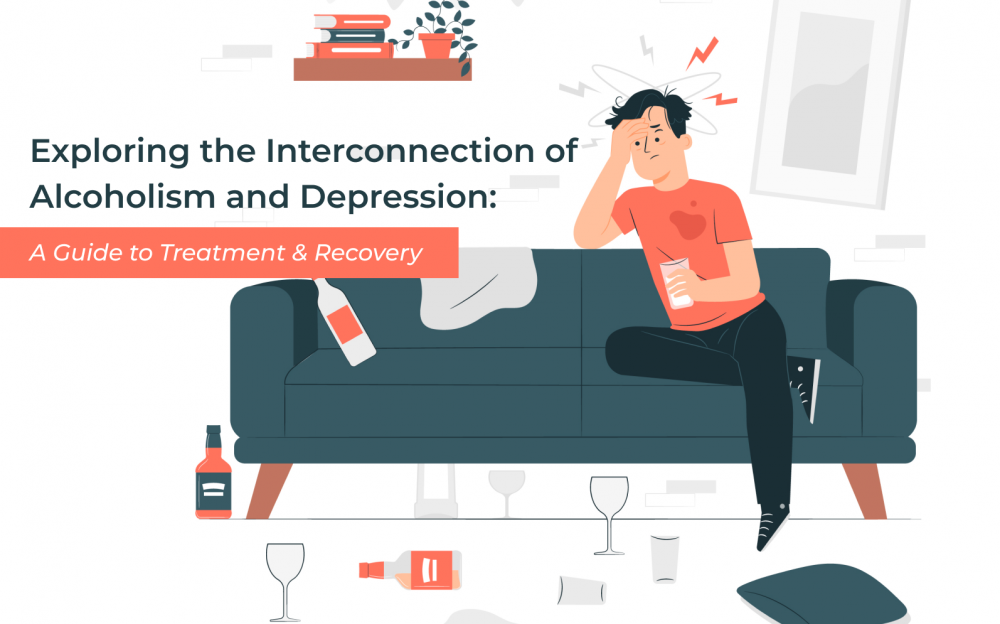

Alcoholism and depression are two conditions that often occur together and can have a significant impact on a person's life. Understanding the connection between these two conditions and the available treatment options can help individuals get the help they need to overcome both conditions and improve their quality of life.
1. Connection between alcoholism and depression:
Alcoholism and depression often occur together due to a vicious cycle. People may turn to alcohol to temporarily relieve the symptoms of depression, but excessive alcohol use can worsen the symptoms of depression, leading to a continued cycle of drinking to cope. This cycle can be difficult to break without professional help.
2. Dual diagnosis:
It is important to understand that alcoholism and depression are separate conditions and must be treated as such. This is known as a dual diagnosis, and a healthcare provider must assess and treat both conditions in order to achieve the best outcome.
3. Medication:
Medication is often prescribed to treat both alcoholism and depression. Antidepressants and anti-anxiety medications can help alleviate the symptoms of depression, while medications such as disulfiram or naltrexone can help reduce cravings for alcohol. It is important to note that medication should only be used under the guidance of a healthcare provider.

4. Therapy:
Psychotherapy is a crucial component of treatment for both alcoholism and depression. Cognitive-behavioral therapy (CBT) and dialectical behavior therapy (DBT) are two forms of psychotherapy that have been shown to be effective in treating both conditions. These forms of therapy help individuals identify and change negative thought patterns, improve their coping skills, and develop a more positive outlook on life.
5. Rehabilitation:
For individuals with severe addiction, inpatient rehabilitation may be necessary. This type of treatment offers 24-hour support and access to a range of therapies, including individual and group therapy, as well as support from peer groups.
6. Support from family and friends:
Support from loved ones can be incredibly helpful for individuals struggling with both alcoholism and depression. Encouragement and understanding can help a person feel less alone and more motivated to stick to their treatment plan.

7. Coping strategies:
Developing healthy coping strategies, such as exercise, mindfulness, and creative activities, can help a person manage symptoms of depression and reduce their reliance on alcohol.
8. Aftercare:
After completing treatment, it is important for individuals to continue to receive support to maintain their progress. This may include regular therapy sessions, support groups, or 12-step programs.
9. Relapse prevention:
Relapse is common with both depression and alcoholism, so it is important for individuals to have a plan in place for preventing relapse. This may involve avoiding triggers, such as certain people or places, and having a support system in place to help in the event of a relapse.
In conclusion, alcoholism and depression are serious conditions that require comprehensive treatment, including medication, therapy, and support. By working with a healthcare provider and utilizing the available resources, individuals can overcome these conditions and improve their overall quality of life. It is important for individuals to understand that recovery is a process, and that it may take time to achieve long-term success. However, with the right support and resources, individuals can overcome both alcoholism and depression and live a fulfilling life.